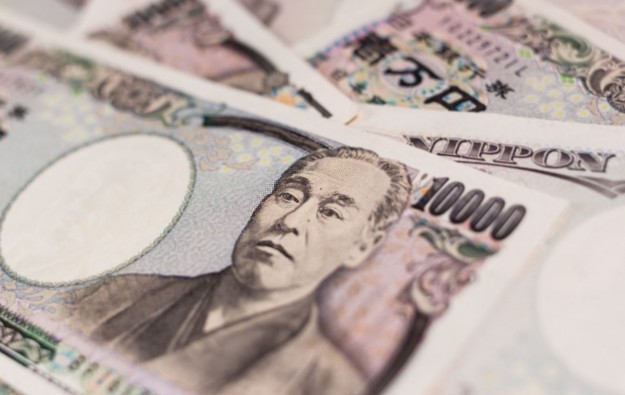Japan casinos could generate up to US$20bln GGR: panel
Nov 16, 2017 Newsdesk Japan, Latest News, MGS Entertainment Show 2017

A Japanese casino market could potentially generate annual gross gaming revenues (GGR) of up to US$20 billion – assuming that a total of nine casino resorts are allowed to be built in different locations, suggested Takayoshi Koike, a former investment banker and now chief executive of consultancy service Capital and Innovation Inc.
He was speaking at a conference panel on Thursday at MGS Entertainment Show 2017 on the development of integrated resorts (IRs) and legalisation of gaming in Japan.
Mr Koike said he believes the Japanese government would allow up to nine IRs “at most” to be established in the country, adding that the assumption was based on a “consensus among Japanese lawmakers”. He noted however that each location would likely be host to a single casino resort, with the likely candidates being: Hokkaido, Miyagi, Chiba, Tokyo, Kanagawa, Osaka, Tokushima and Nagasaki.
The consultant said the potential market capitalisation of so-called “metropolitan integrated resorts” – which he referred to as venues located in the country’s Kanto and Kansai regions – could become one of the “world’s largest”. Assuming that one large scale casino resort is allowed to operate in Kanto, it might have a market capitalisation of up to US$25 billion; while that for a casino resort in Kansai region could reach up to US$12 billion, said Mr Koike.
The prefectures of Chiba, Tokyo and Kanagawa are located in the Kanto region; while Osaka is located in the Kansai region.
Japanese brokerage Nomura said in an August report that a casino industry in Japan with “two major integrated resorts” could eventually generate GGR of US$7 billion per year.
Getting the right local partner – which Mr Koike described as a “local business leader” – would be the key to improve the chances of getting selected by the local government for an IR licence, said the consultant.
Japan is currently in the process of introducing a legalised casino industry in the country. A piece of legislation called the IR Implementation Bill is likely to be discussed during the next regular session of that nation’s parliament in 2018, once another piece of legislation dealing with problem gambling has been enacted, according to industry commentators.
If the IR Implementation Bill is passed in 2018, Mr Koike said he expects several local governments to start their respective request for proposals (RFP) soon after that happens. That would be followed by the selection process conducted by the central government starting in 2019, he added.
Legislation progress
Following Japan’s snap parliamentary election on October 22, doubts have been raised as to whether the bill addressing problem gambling could be passed at the country’s parliament – a body also known as the Diet – within this year, said Kazuaki Sasaki, associate professor at the department of international tourism management of Toyo University.
Mr Sasaki, also a speaker at Thursday’s conference panel, is also the director of Japan’s IR (Integrated Resort) Gaming Society.
The scholar said that the most optimistic view is for the bill addressing problem gambling to be approved during the current special session of the Diet, which runs until December 9. Under this scenario, it could be possible for the IR Implementation Bill to be passed at the next ordinary session of the parliament in 2018.
Mr Sasaki said however that he believes that the parliament has other pressing issues to address during the current special session. It is more likely that both the bill addressing problem gambling and the IR Implementation Bill to be discussed only next year, he added.
He said there could be to scenarios for the approval of the relevant bills. In the first scenario, both bills could be approved by the Diet during the next ordinary session, which is usually convened in late January; a second scenario, would be for the bill addressing problem gambling to be passed during the ordinary session, with the IR Implementation Bill to be passed during the parliament’s next extraordinary session, which is usually convened in late September.
Related articles
-
 Universal Ent raises US$800mln to...
Universal Ent raises US$800mln to...Jul 24, 2024
-
 Konami says lowering public investor...
Konami says lowering public investor...Jun 27, 2024
More news
-
 Donaco EBITDA up y-o-y to above US$4mln...
Donaco EBITDA up y-o-y to above US$4mln...Jul 26, 2024
-
 HK listed Palasino upgrades Czech...
HK listed Palasino upgrades Czech...Jul 26, 2024
Latest News
Jul 26, 2024
Border-casino operator Donaco International Ltd has achieved a 164.17-percent year-on-year increase in its latest quarterly group earnings before interest, taxation, depreciation and amortisation...Sign up to our FREE Newsletter
 (Click here for more)
(Click here for more)
Pick of the Day
”We’ve got more traction outside of Macau at the moment. But Macau’s going be a bigger focus for us”
David Punter
Regional representative at Konami Australia
Most Popular
 Sheraton brand to exit Londoner Macao, to be Londoner Grand July 25, 2024
Sheraton brand to exit Londoner Macao, to be Londoner Grand July 25, 2024  Macau regulator probes unlicensed gaming agents July 24, 2024
Macau regulator probes unlicensed gaming agents July 24, 2024  Philippines gives 20k aliens in POGOs 60 days to leave July 25, 2024
Philippines gives 20k aliens in POGOs 60 days to leave July 25, 2024  Philippines-listed DigiPlus says not affected by POGO ban July 24, 2024
Philippines-listed DigiPlus says not affected by POGO ban July 24, 2024  Sands China 2Q EBITDA down q-o-q amid low hold, renovation July 25, 2024
Sands China 2Q EBITDA down q-o-q amid low hold, renovation July 25, 2024






